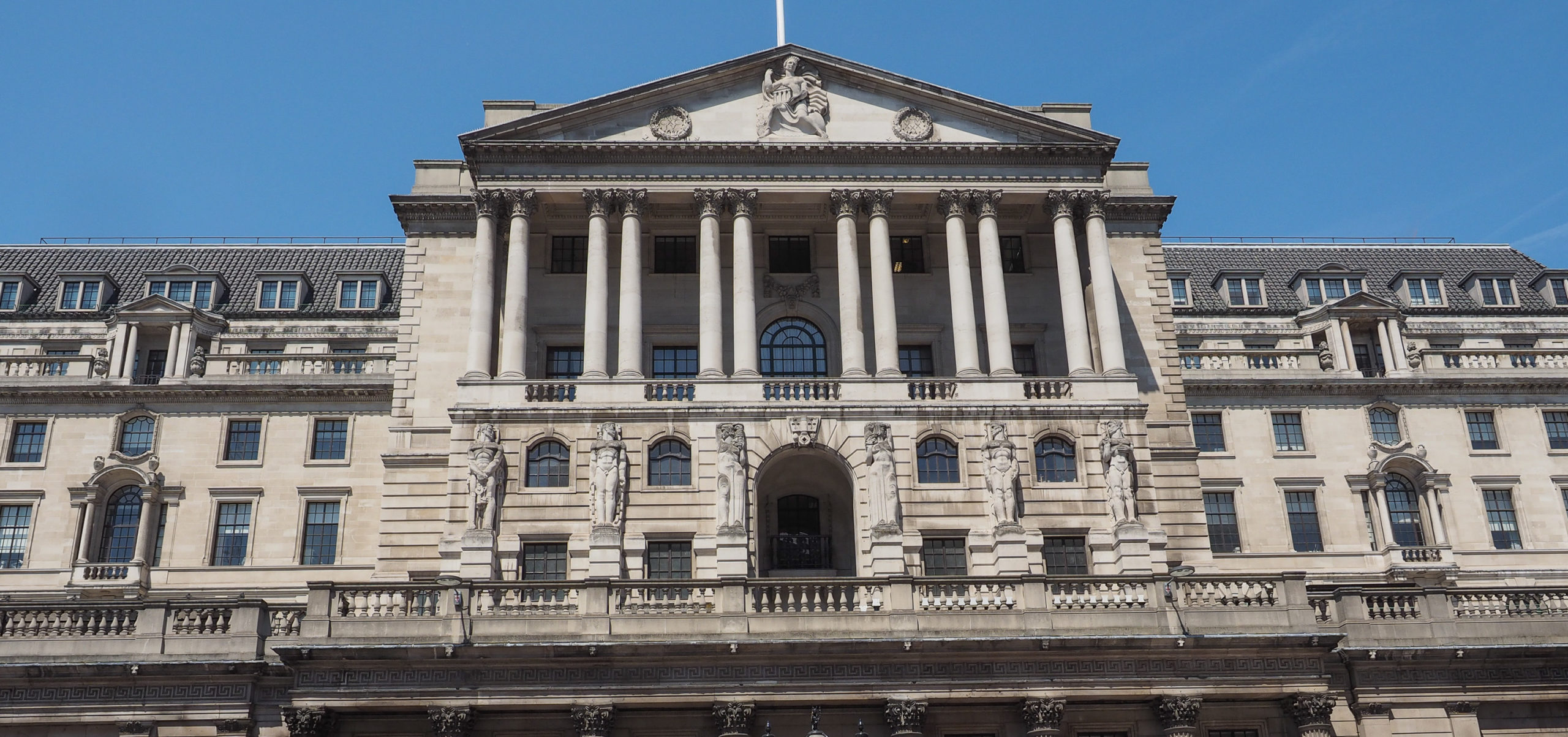Decision made amid concerns regarding the economy.
With inflation now at its lowest level in two years, the Bank of England (BoE) announced it is keeping its interest rates unchanged for the third consecutive time on Thursday.
In a move widely expected by financial markets, the central bank’s Monetary Policy Committee (MPC) voted to maintain the base rate at 5.25%, leading analysts to believe that rates have finally reached their peak following a series of hikes that started in December 2021, when the rate was at a record low of 0.1%.
Now at its highest since the 2008 global financial crisis, the rate remained static despite growing concerns regarding the condition of the UK economy, with yesterday’s news that GDP fell by 0.3% in October. Inflation dropping to 4.6%, experts believe, played a big part in the MPC decision, though the current inflation rate is still more than double the government’s 2% target.
What has been the impact on the property market? Successive decisions to maintain the BoE base rate have prompted signs of recovery in the property market. A number of mortgage lenders have implemented rate reductions on their products, resulting in the average rate for a two-year fixed falling below 6% for the first time since June.
The decrease in mortgage costs has played a role in a modest resurgence in house prices, as per data from Halifax, revealing a 0.5% increase in November. Despite this, mortgage rates are still significantly higher compared with a year ago – the average cost of a two-year fixed rate was 2.34% in December 2022.
“2023 has been a turbulent year in the UK property market, with successive interest rate increases and a generally hawkish approach to the control of inflation by the Bank of England,” David Hannah, group chairman of Cornerstone Tax, commented. “Emerging trends, such as a 17% decline in transactions in November, indicates that the BoE may have overcompensated at the expense of the property market. That being said, there has been no crash as some have predicted, but rather, a softening in asking prices and a demonstrable development of a buyer’s market. This can, however, be contrasted by some parts of the UK being property hotspots where prices have actually increased. November inflation figures and mortgage approvals should indicate an overall cooling off of the UK economy which, if we are to avoid a recession next year, must be acknowledged by the BoE and, in an effort to avoid a sudden crash of inflation, will increase pressure on the MPC to start reducing interest rates sooner rather than later.”
Interest rate rises haven't fully hit UK yet - warning
Household finances remain stretched and the full impact of higher interest rates and mortgage pricing has yet to fully hit the UK, the Bank of England has warned.
The Bank’s latest Financial Stability Report for December 2023 highlighted that around 45% of fixed-rate mortgage deals agreed before the end of December 2021 – when interest rates started rising - are yet to renew. Its report said around 55% of mortgage accounts - around 5m - have repriced since rates started to rise in late 2021, while higher rates are expected to affect around 5m households by 2026.
For the typical owner-occupier mortgagor rolling off a fixed rate between the second quarter of 2023 and the end of 2026, their monthly mortgage repayments are projected to increase by around £240, or around 39%.
The report said interest rate rises may have peaked but the cost of borrowing is likely to remain higher for longer. The Bank said “household finances remain stretched by increased living costs and higher interest rates, some of which has yet to be reflected in higher mortgage repayments. Arrears for secured and unsecured credit remain low but are rising as the impact of higher repayments is felt by borrowers.”
It comes as UK Finance revealed that mortgage lending remained weak during the third quarter amid the higher cost of living and rising interest rates.
Lending for house purchases fell throughout the third quarter, with first-time buyer activity down by almost one fifth and home movers by one quarter compared with the same period of 2022. Mortgage arrears remain low but rose 9% on a quarterly basis to 99,840 at the end of the third quarter, the banking trade body said.
Eric Leenders, managing director of personal finance at UK Finance, said “while the cost of living continues to challenge households, many are managing to avoid using overdrafts and still have a savings cushion to draw on. Sustained house prices and rising mortgage rates have meant mortgage lending remained weak last quarter, and we expect this to continue in the fourth quarter of this year.”

